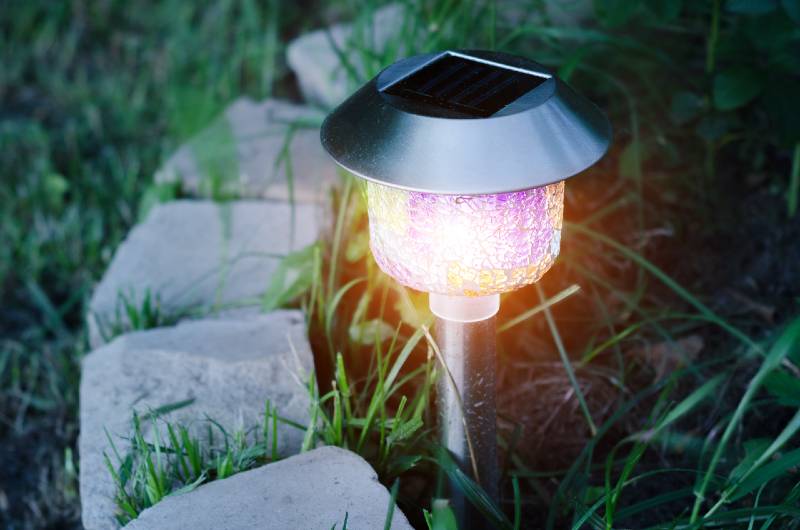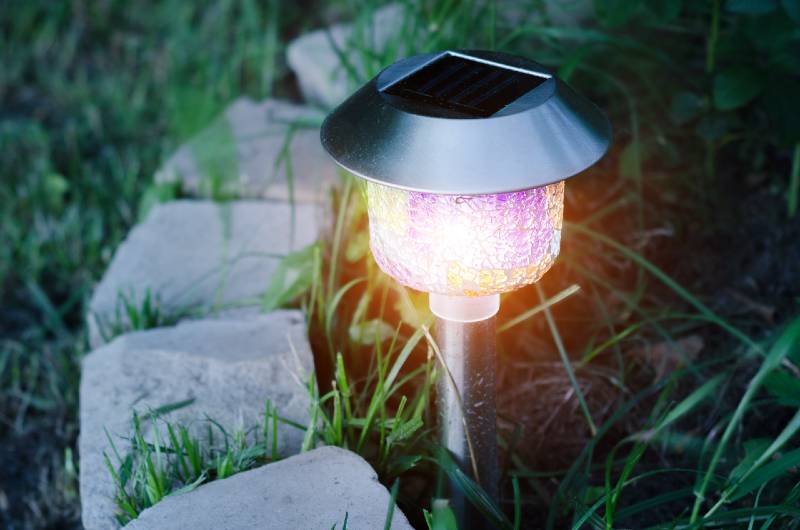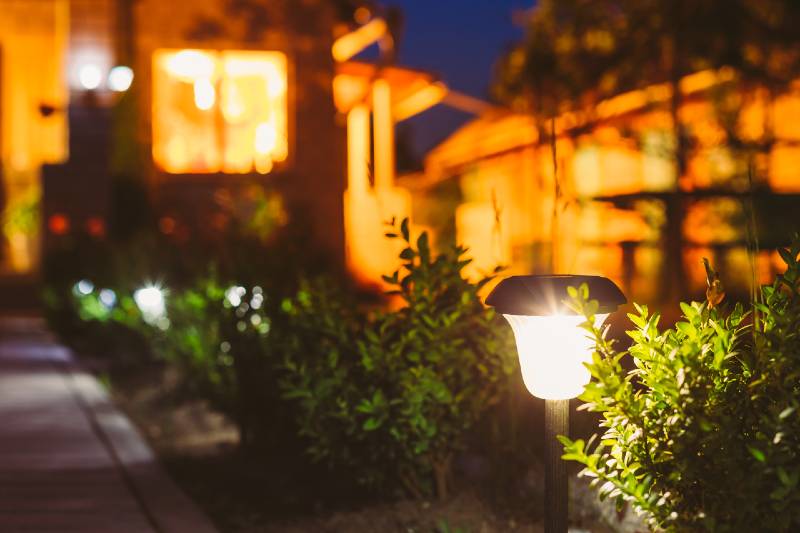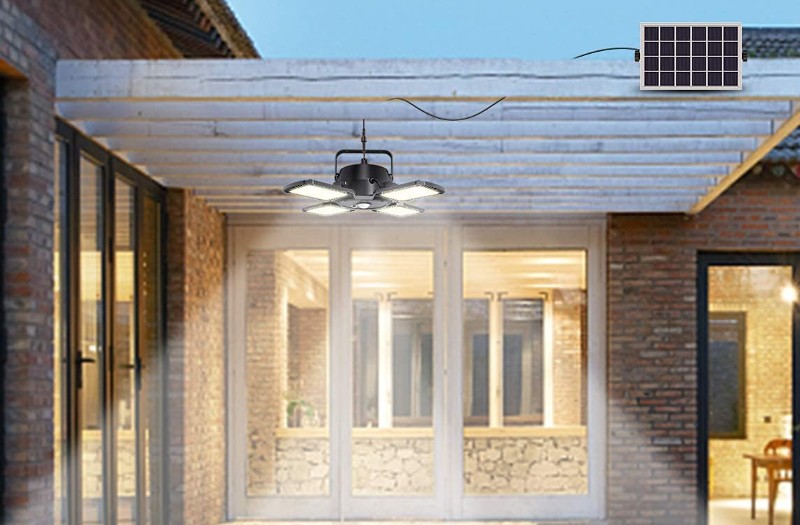As we’re approaching the cold and rainy winter season, you may wonder how to protect your solar lights and other decorative items from.
And with the variation of the solar lightning and accent pieces in the market, it can be a bit difficult to get a grasp on what can stay inside and what should be stored over the season.
So in case you’re wondering what should and shouldn’t stay outside, don’t worry we got you covered.
In this article, we will provide you with a step by step guide on how to store your solar lights over the winter.
But before that, let’s first let’s discuss why you should store your solar lights over the winter, even if they are waterproofed.
Why Should You Store Your Solar Lights During Winter?
Well, the short answer is to increase its lifespan and make sure your solar lights will last longer.
Yes, almost all solar lights -even the cheap ones- are made of corrosion-resistant materials (mostly plastic) and have at least an IPX4 waterproof rating.
However, over time, the sealing of your solar lights will deteriorate and allow water to leak, causing short circuits and damaging the internal electronics of your lights. Thus, reducing its lifespan.
Therefore, it’s recommended to store your lights, especially if you live in a harsh weather area.
Related article: Do Solar Lights Work In Winter?
Should All Solar Lights Be Stored In Winter?
There are some factors that should be considered before deciding to keep your solar lights outside including:
1. The Weather In Your Area
Things like how hard do it rain, the amount of snow, and how cold it’s outside are all factors that you should definitely consider.
For instance, extreme cold can put A LOT of stress on your batteries, diminishing their ability to power your lights.
Another important factor to consider is how much sunlight do you get.
If you are getting very little sunlight, then keeping your lights outside makes no sense, as the solar panel won’t be able to generate enough energy to power your lights for a couple of hours and in most cases, there won’t be enough charge in the batteries to power the light for even a few minutes.
As a rule of thumb, if you don’t get at least 2 hours of direct sunlight during the winter months, then you should definitely store your solar lights.
Related article: How To Charge Solar Lights Without Sun?
2. The IP Rating Of The Light
IP rating stands for “ingress protection” which tells whether your solar light can withstand natural threats like water, snow, wind, etc.
Depending on the quality of your solar light, it can have an IP rating from IP44 and all the way to IP68 (the higher the better), but what does this mean?
To answer this question, here is a list of the most common solar lights’ IP ratings:
- IP44: This means that your lights can only handle dust and splashing water. It can’t withstand neither water jets nor the pressure from water submergion
- IP65: This means that the light can withstand dust and low pressure water such as light rain
- IP66: This means that the light can handle powerful water jets and heavy rain
- IP67 and IP68: In addition to the ability of withstanding high pressure water jets, lights with those waterproof rating can also survive water submergion for up to 2 of hours
Related article: How To Choose The Best Solar Lights
Now after understanding the difference between solar lights’ waterproof ratings, it’s time to walk you through the best way to store your solar lights.
Tips For Storing Your Solar Lights
1. Clean & Dry
First thing first, it’s recommended to clean your solar lights from any debris or dust before storing them.
This is because debris can harden over the winter, which makes them much harder to clean later.
Further, although most solar lights are made of corrosion resistant materials, there are still a few metal parts that would likely face the danger of rust or corrosion, so make sure to carefully dry your lights before storing them.
2. Switch The Power Off
Maybe you’d be like duh? Who would forget to switch off the solar light before storing it right?
It may look like a no-brainer but unfortunately, a lot of people forget to do so, which increases the risk of reducing the lifespan of the product.
3. Remove The Batteries
This is a vital step, as leaving the batteries inside the solar light increases the risk of chemicals leaks and corrosion, which can significantly damage your solar light.
It’s always cheaper to buy a couple of batteries than buying a new solar light, so it’s recommended to remove the batteries and store them separately.
Here is how to store solar lights batteries:
- Wrap the batteries in packing paper
- Put the batteries of each product in individual envelopes and write down the product name on each envelope. This is very important, as not all your solar lights’ batteries have the same size, voltage, and amperage specifications.
- Something to consider is that rechargeable batteries will be damaged if we stored them in an uncharged state. Depending on the technology of the battery we determine how much it should be charged before storing. For example, in the case of Li-ion batteries, it’s recommended to charge them to 30%-50%, and for Nickel-based, it can be kept in any state of charge.
4. Wrapping
The heads of solar lights’ lamps are made of glass that is very week and fragile.
In order to decrease the risk of breakage or crack while storing, it’s recommended that you wrap those glass parts in old clothes, pack paper, or even bubble wrap.
3. Storing
When it comes to the place where to store your solar lights, we have a general rule that says:
Don’t keep your solar products in a place where a plant can’t survive more than a few days.
As we mentioned before, solar lights have parts that can corrode and rust, so it’s important to store them in a dry cool place.
Garages are usually a good choice to store your solar lights on the contrary basements aren’t the best choice to do so.
Related Article: 12 Reasons Why Your Solar Lights Not Working & How To Fix
Last Words
As promised, in this article we discussed why you should store your solar lights, factors to consider, and how to store solar lights the right way.
In the end, we really hope you enjoyed this article as much as we did.
Do you have any questions about solar lights?
If so, please share your thoughts with us in the comments section below.







Why would storing in a garage be better than a basement? And, what if my solar lights do not have an ‘off’ switch? My batteries also don’t seem removable and are built in the solar head.
The garage is generally better because it tends to be less humid, less prone to pests, and cooler than the basement — especially if insulated. But you can still store the lights in the basement if you want to. Garages are just more optimal.
I can’t really answer the second question before knowing the model of your solar lights. Feel free to reach out with more details.